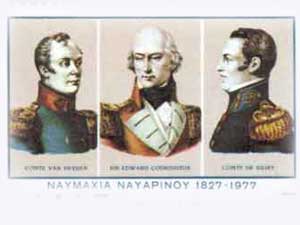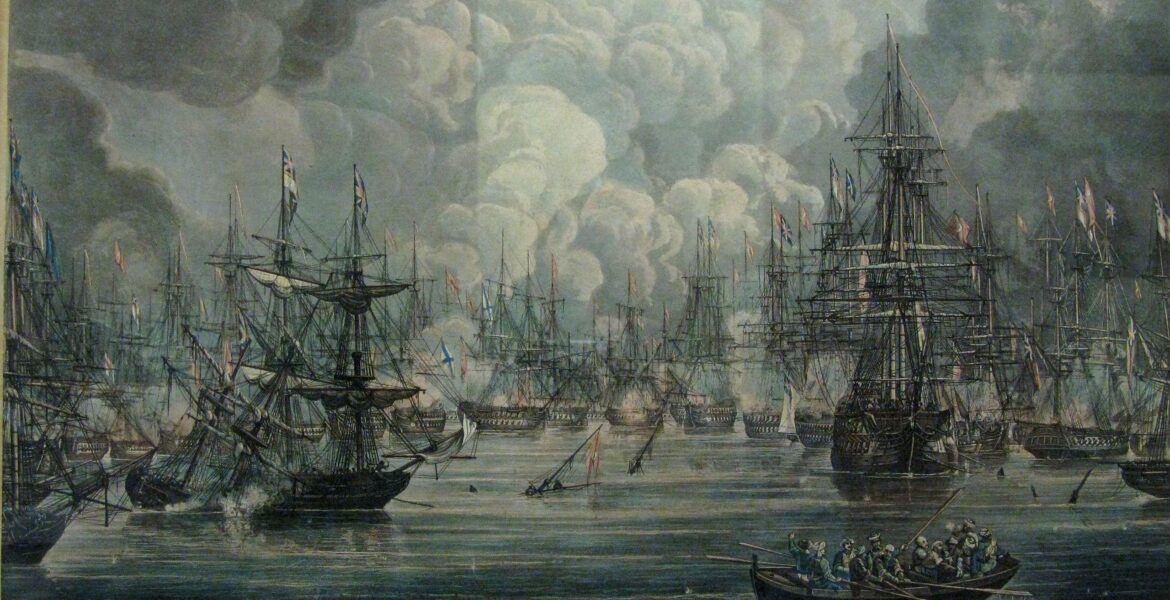History determines that the battle of Navarino became the last major naval battle that was exclusively fought with sailing ships, although most ships fought at anchor.
In 1825 the Egyptian Sultan Ibrahim Pasha, allied with the Ottomans, conquered the fortress of Navarino and made it his base.
In the Treaty of London (6th of July 1827), the three European powers of Britain, France and Russia agreed to create a semi-independent Greek state under the supervision of the Sultan. The revolutionary government accepted the treaty despite the disappointment of the majority of the Greek people, but to Greece’s good fortune, Sultan Ibrahim Pasha rejected it categorically.
As a result Sultan Pasha called for aid in October 1827 and a large joint Turkish-Egyptian fleet of 89 vessels entered the Bay of Navarino to reinforce land forces of the sultan.
The Three Great Powers agreed to force the Ottoman government to grant Greek autonomy within the empire and dispatched naval squadrons to the Eastern Mediterranean Sea to enforce their policy.
The European fleet was led by British Admiral Edward Codrington with flagship ‘Asia’ and 12 other war ships. Dutch Admiral Lodewijk van Heiden in service for the Russians with flagship ‘Azov’ and 8 war vessels and French Admiral Henri de Rigny with flagship ‘Siren’ and 7 warships. All three European powers entered the Bay relying on a secret article in the treaty stating that it is appropriate to use whatever measures the circumstances dictate to bring peace in the region and to reduce the forces of Sultan Ibrahim Pasha in order to accept the Treaty of London ultimately.

Codrington’s combined fleet consisted of 12 ships of the line, eight frigates and six other vessels, while the forces of Ibrahim Pasha numbered seven ships of the line, 15 frigates, 26 corvettes and 17 other vessels, including transports. Although outnumbered, the allied force enjoyed superior fire power to its opponents.
The Battle of Navarino was described as an ‘untoward event’ as the three European powers didn’t intend to make such a bloody confrontation. The allied fleet used light boats during the negotiations with the Turk-Egyptians in order to prevent a massacre in the Bay.
Codrington gave orders that no gun should be fired unless guns were first fired by the Turks; and those orders were strictly observed. Three English ships were accordingly permitted to pass the batteries and to moor, as they did without any act of open hostility, although there was evident preparation for it in all the Turkish ships.
But upon the vessel HMS Dartmouth sending a small boat to one of the fire vessels, Lieutenant G. Fitzroy and several of his crew were shot with musketry, officially beginning the Battle of Navarino. This produced a defensive fire back from the Dartmouth, and the vessel Lasyrene, that was again succeeded by cannon-shots from one of the Egyptian ships, which of course, brought on return fire.
Peter Mikelis, the interpreter of the British officer used one of these small boats of the HMS Dartmouth. He came under Turkish musket attack and was shot dead accidentally. This was also a main reason the battle started.
The battle lasted for four hours, resulting in the sinking of sixty Turkish-Egyptian ships. To compare: the allied fleet did not loose a single ship.
Although this was a decisive battle in the Greek War of Independence, it would not be until 1828 that the invading Egyptians finally agreed to withdraw their forces from the Peloponnese.
Although the Egyptians already in Greece refused to evacuate, French troops that landed in Navarino Bay, welcomed by the local Greeks, drove our the Egyptians from Greece by October 1828.
Greece would finally achieve international recognition as a state in 1830, with the Ottomans accepting this new reality in 1832.


